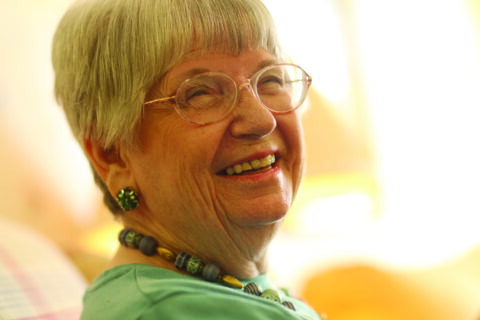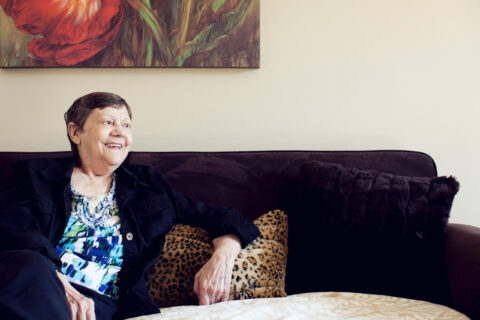5 Questions to Ask Your Loved One About Moving to Assisted Living
Starting the assisted living conversation with an aging parent or loved one can be a pretty uncomfortable experience for all involved. But as with most heart-to-hearts, sometimes the best way to get talking is to start listening. We asked Star Bradbury, a senior living consultant and author of the new book “Successfully Navigating Your Parents’ Senior Years,” for her advice on how to broach the idea of assisted living with an aging family member. Here are five key questions to ask your loved one to get the conversation going smoothly.
1. What are some things you’re having trouble with?
“It’s safe to say parents are pretty resistant to admitting that they need help,” Bradbury says. Keep your eyes open for signs that they might need more assistance than they’re willing or able to acknowledge: mild confusion or forgetfulness, reminder notes posted all over the house, pills left dropped on the floor. “I would begin a very gentle conversation saying, ‘Mom, Dad, I’m worried about you,’” Bradbury says. “‘I can see that you’re struggling with some of these things. Is that true?’” If there is some agreement, the next step is helping them understand that assisted living can provide support for those tasks of daily living—while keeping their independence intact.
2. What’s important to you in a community?
First, a lesson in semantics: “Try to avoid calling it assisted living,” Bradbury says. “My experience is that a lot of people who might need assisted living don’t really understand what it is.” Focus instead on what care communities have to offer that might be of genuine interest to your loved one. Is there a music night? Bible study? A pool? A library? “I would encourage my own mom or dad that there’s a chance to connect, to make friends, have a social life and not be isolated,” Bradbury says.
3. Where do you want to live?
If you don’t live in the same city, try your best to include mom or dad in deciding whether to stay in their own town or move closer to you. While it may be more convenient for you, plucking mom from a community that she’s lived in for decades isn’t necessarily the best choice. “If she’s very strongly connected and she wants to stay, then I would try to work with that,” Bradbury says. Staying in the same place—even if not in the same house—can enable her to maintain friendships and routines that are important to her, like going to the same church. On the other hand, if most of her friends are gone and she’s no longer as connected to where she lives, bringing her close can allow you to provide that support network.
4. Will you come look at a couple places with me?
Don’t overwhelm an ailing parent with choices. Take the time to research several facilities in the area, then pick the two nicest ones and go on a tour together. “After you’ve done your homework, that’s when you bring mom to the community,” Bradbury says. She may be pleasantly surprised by what she finds—I can have my own apartment? I can bring some of my own furniture? I don’t have to worry so much about falling? If she isn’t convinced, try to still involve her in the decision making as much as possible. “Try to give her the choice,” Bradbury says. “You can ask, ‘Which one do you like better? I’ve already visited the others and I think these two are the best. What don’t you like about it?’”
5. How can we maximize your independence?
Many seniors equate greater independence with staying put, when in fact the opposite can be true. “It’s very, very rare that anyone is going to volunteer to move to assisted living,” Bradbury says. “They’re going to say, ‘I want to stay in my house.’” But the key to accepting and even embracing the idea of assisted living is helping an aging loved one to understand that getting support for basics like meals and medications can prolong their autonomy. “Living in a community can provide tremendous support and allow your loved one to maintain independence for even longer,” Bradbury says. “It can keep them out of the hospital, keep them mobile, keep them social, and that’s going to help them stay independent longer.”
Contemplating the next chapter in your loved one’s story? Click here to learn more about Bickford Senior Living and to find a branch near you.



